Are You Ready to Witness the Future of Data Security?
Platform
©2026 QuNu Labs Private Limited, All Rights Reserved.

Are you losing sleep over artificial intelligence and quantum computing threats to your encryption? You're not alone. Every week, another CXO is concerned about the data security of their organisation’s critical assets. Is Q-Day near? This question set the tone at the recent CXO Roundtable on Quantum-Resilient Cybersecurity in BFSI, hosted by Tech Achieve Media.
The event brought together C-level executives from banking and financial institutions, investors, and regulators to discuss one of the most urgent risks facing digital trust from quantum technology.
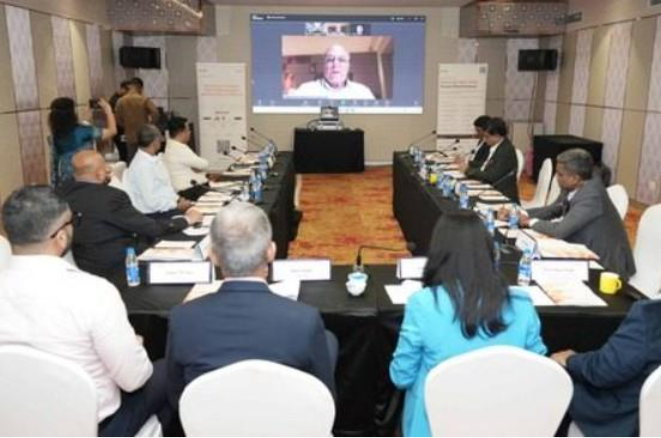
While the term post-quantum cryptography (PQC) has dominated headlines, the roundtable went far deeper. It examined harvest now, decrypt later (HNDL) threats, regulatory gaps, and the role of hybrid quantum resilience (PQC + QKD) in safeguarding India’s BFSI sector.
QNu Labs was at the heart of these conversations by not only showcasing solutions but also shaping the national dialogue on digital sovereignty, resilience, and trust.
Dr. Ajai Chowdhry, Chairman of the National Quantum Mission, underlined India’s need for Atmanirbhar quantum-resilient systems.His call was clear-protecting BFSI means safeguarding the backbone of India’s digital economy.
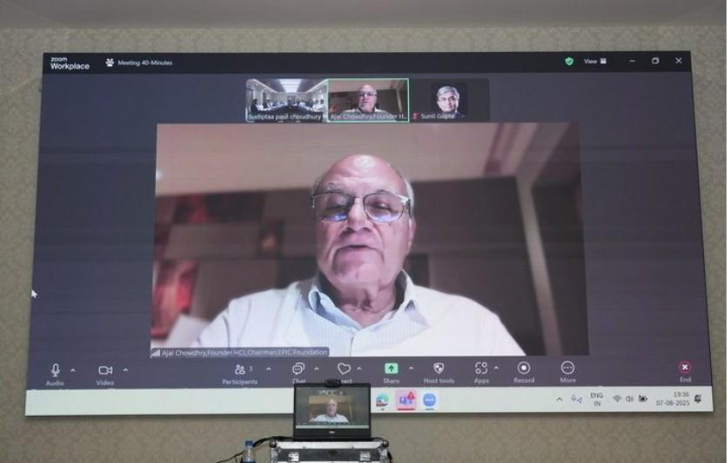
Prof. Ajay Singh, Task Force Member, mapped the “quantum threat timeline” and pressed on the urgency of Q-Day preparedness.

Sunil Gupta, CEO & Co-founder of QNu Labs, highlighted the global divide: while leading BFSI players are already investing in phased adoption of quantum-safe encryption, many others are still ‘waiting and watching’. He stressed the risks of delay for Digital India’s trust.

Let’s dive into the insights from the event.
Based on a professional assessment of the likelihood of Quantum computing is breaking current standard encryption, the estimation indicates expected losses of about 0.1% of GDP on average within five years of the attack. (BIS research paper)The survey results suggest that, with an increasing likelihood of decryption over time, expected losses could surpass 1% of GDP within 15 to 20 years, with emerging market economies potentially facing even larger losses.(BIS and Hudson Institute research paper)
For a $25 trillion GDP economy, 1% represents $250 billion in potential losses from quantum-enabled cyber attacks.(World Economic Forum)
The most sobering moment came during discussions about HNDL (Harvest Now, Decrypt Later) attacks.
"Your encrypted data is being collected right now," explained one cybersecurity expert. "Bad actors don't need quantum computers yet. They're patient. They'll wait until 2028, 2030, then decrypt decades of your sensitive records overnight."
A private bank CEO shared "So our customer data from 2020 could be exposed in 2029 by attacks happening today?"
"Exactly."
The room fell silent.
We can't wait for RBI to spell everything out; SEBI's 2025 deadline is eighteen months away. If we're not testing financial data protection solutions now, we'll be scrambling later.
Sunil Gupta's observation highlighted the global divide -” There's a dangerous split emerging. Leading BFSI players are already investing in phased quantum-safe adoption. Too many others are still waiting and watching. The reactive approach won’t work now; it’s high time we become proactive to save from quantum reality"
"While you're waiting and watching," Gupta warned, "global peers are moving. The cost of inaction could dwarf the cost of preparedness."
Deodoro et al (2021) identify the most vulnerable areas as: online/mobile banking, payment transactions (including cash withdrawals), business-to-business privacy and virtual private network (VPN) communications.
Every system in your bank depends on encryption:
When quantum computers mature, all these systems become vulnerable simultaneously.
Research presented by QNu Labs (citing Deodoro et al., 2021) identified exactly where banking cybersecurity threats hit hardest:
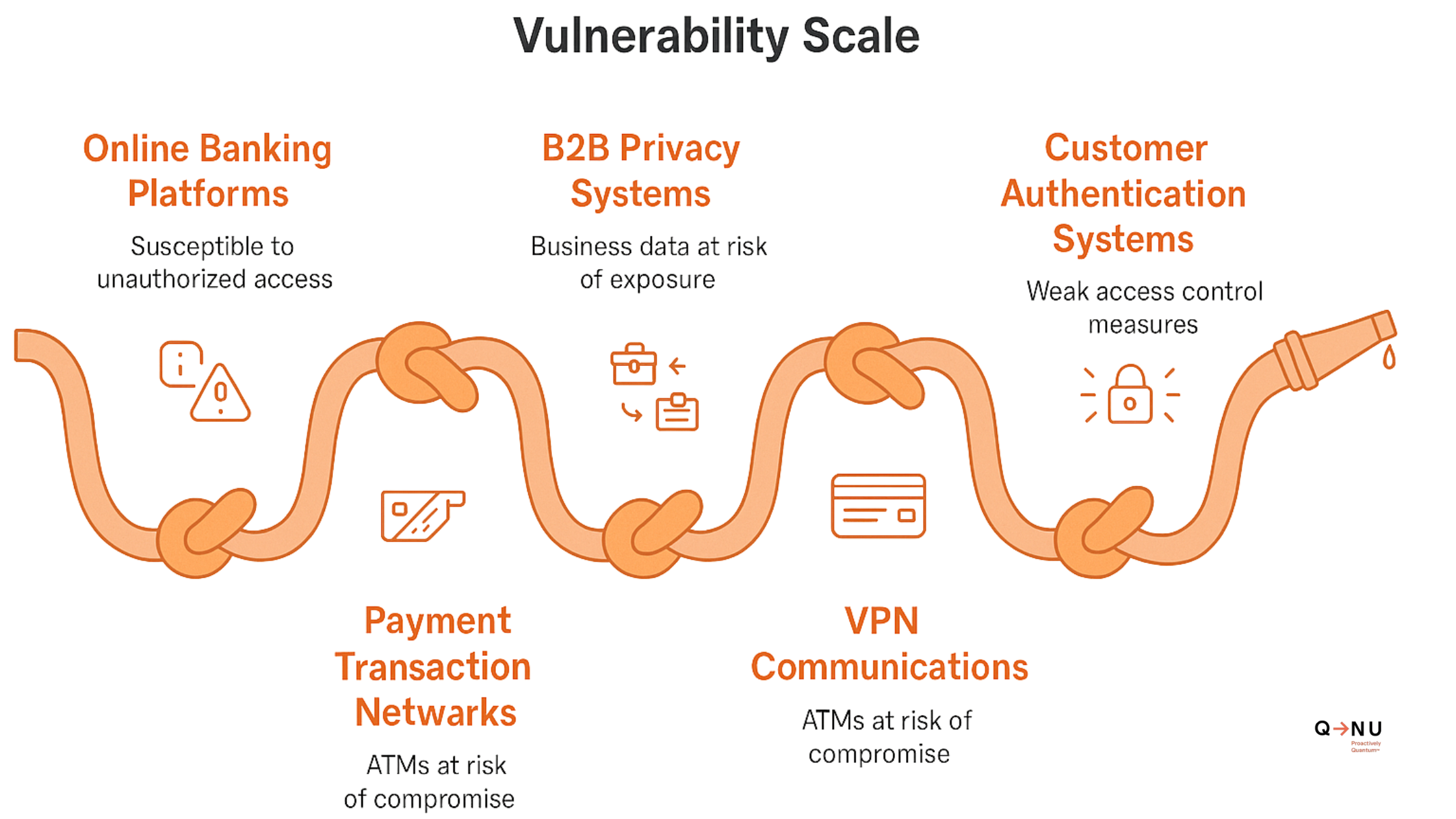
Even with awareness rising, the sector still faces:
But as global peers move faster, the cost of inaction could dwarf the cost of preparedness.
QNu Labs is the world’s only full-stack cybersecurity company delivering hybrid quantum resilience, combining hardware innovation with post-quantum cryptography (PQC) software. This approach creates a multi-layered, crypto-agile defence that adapts as threats evolve.
Our portfolio includes:
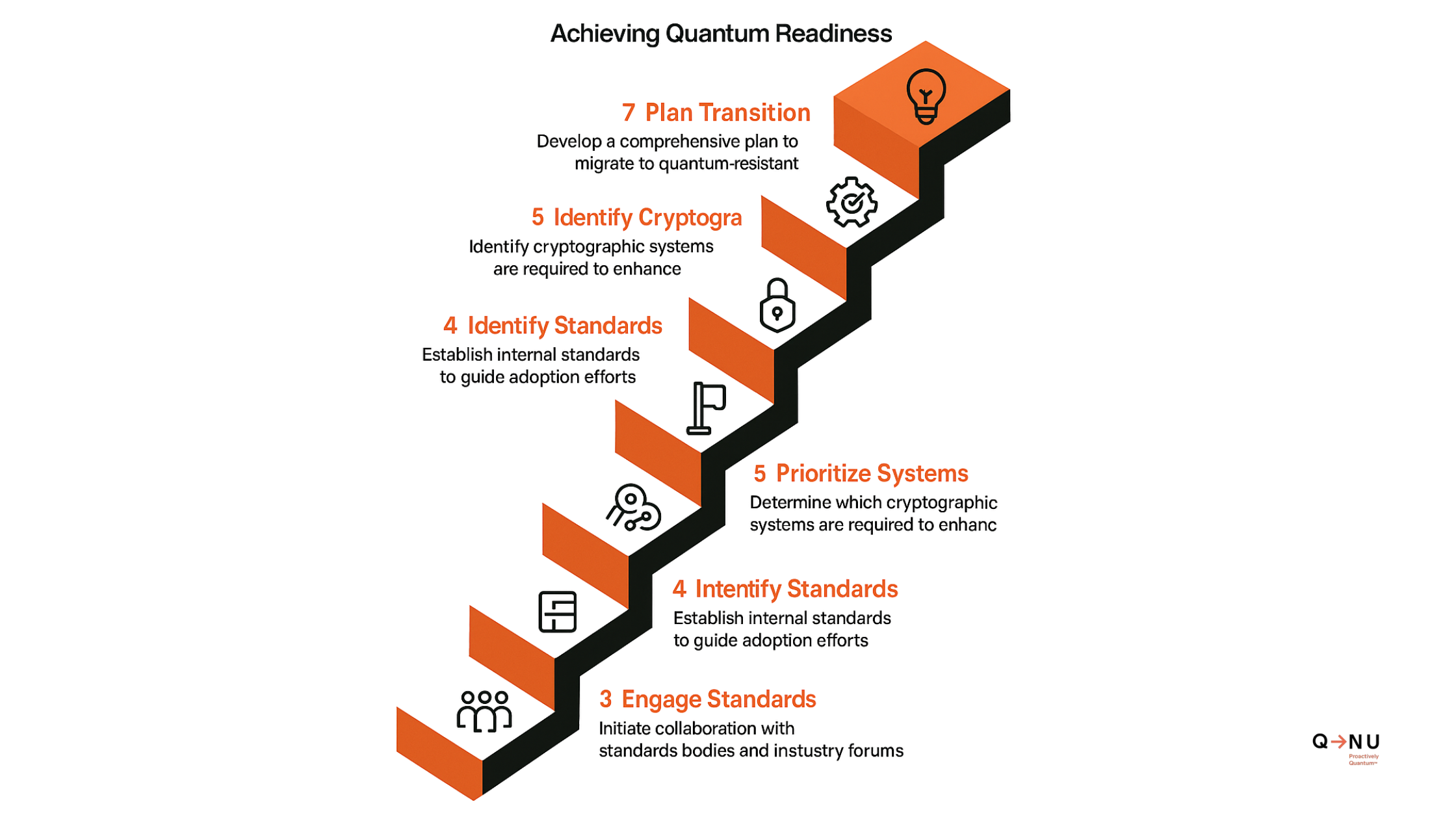
This hybrid model gives enterprises:
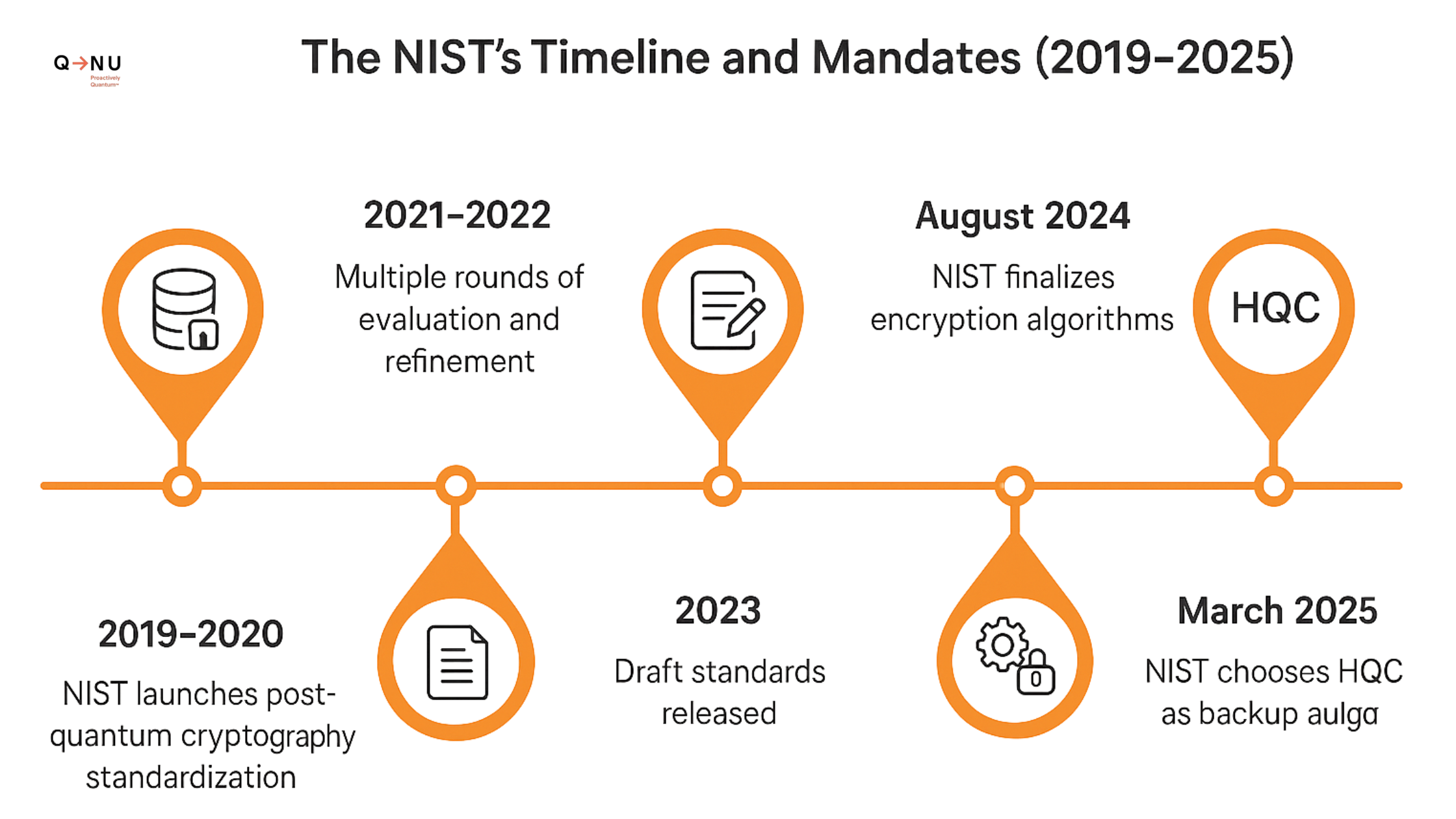
Together, these solutions form The Strategic Quantum Resilience Ecosystem. Deployments span Defence, BFSI, Telecom, Finance, and Government projects, proving both scalability and readiness. This means not just conceptual tech but on-field tested solutions.
1. Quantum is not a theoretical concept it is happening now
The consensus was clear: quantum resistant encryption migration must begin immediately. Q-Day is near means testing, training, and implementation need to start today. No time to wait.
2. Lost Trust will destabilise markets
Beyond immediate encryption vulnerabilities, participants worried most about trust collapse. If customers lose confidence in banking security, entire markets could destabilise.
3. India Must Lead, Not Follow
The strongest theme was self-reliance. Dr. Chowdhry's call for Atmanirbhar quantum solutions wasn't just policy rather it is a strategic necessity.
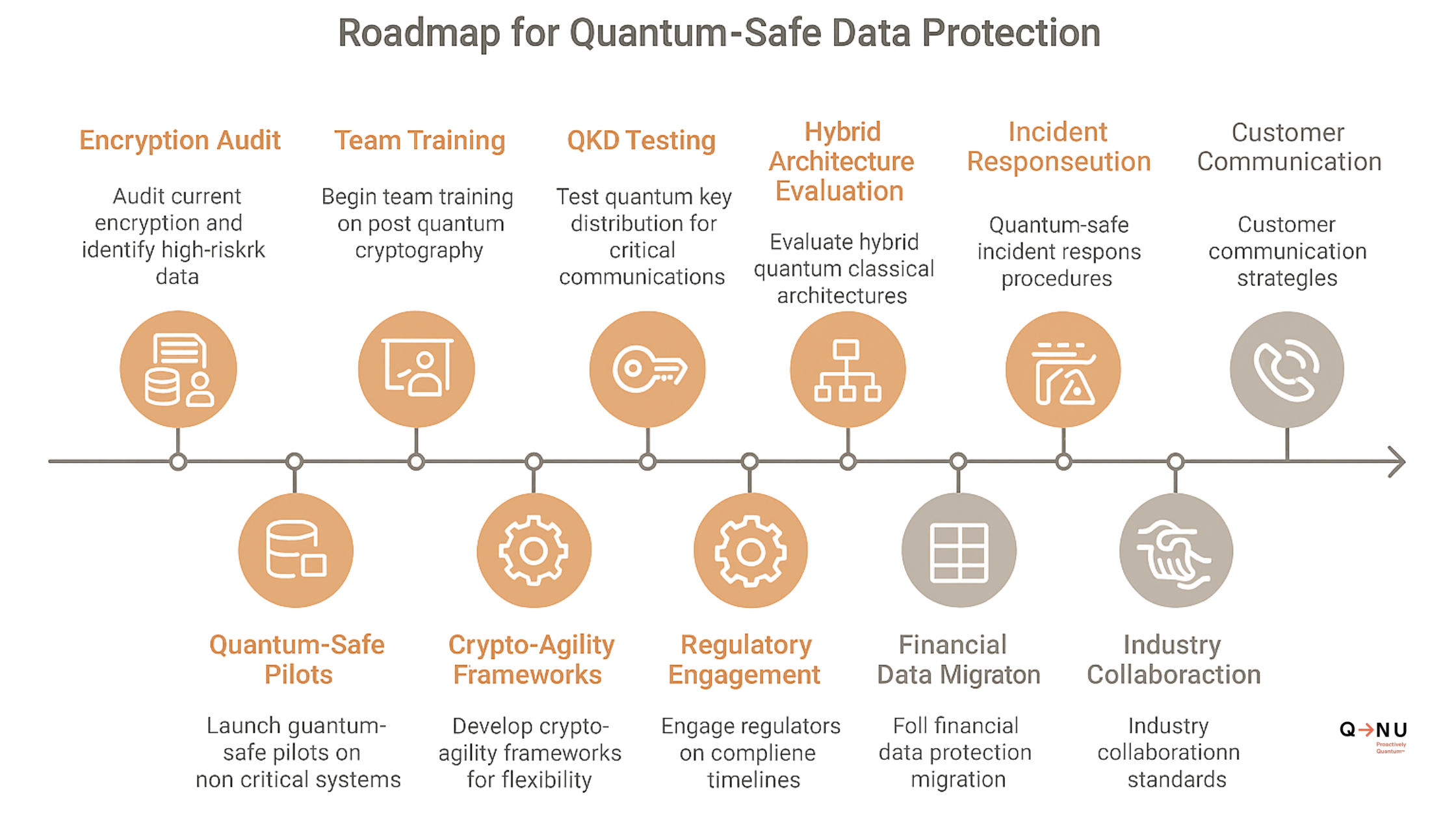
The roundtable provided answers and a comprehensive knowledge on what should BFSI organizations do to adopt data security that is unhackable and does not depend on quantum computing; implementation and readiness to be assessed further by each organisation, and QNu will help them achieve that being the Industry Leader.
The quantum threat is real. The timeline is shorter than we thought. But India has the right technology, talent, and will turn this challenge into a competitive advantage.
The question isn't whether quantum computers will break current encryption. The question is whether your bank will be ready when they do.
QNu Labs continues driving India's quantum-safe transformation through integrated solutions spanning quantum key distribution, quantum random number generation, and post-quantum cryptography. For strategic implementation of quantum-resilient cybersecurity, connect with QNu Labs' expert team.
FAQs
What was the main focus of the CXO Roundtable?
The roundtable focused on quantum threats to BFSI, with emphasis on Q-Day, HNDL attacks, and post-quantum readiness.
Why is BFSI under the most pressure?
Banks hold long-term sensitive data, making them prime targets for HNDL threats. A breach could trigger systemic trust collapse.
What role does QNu Labs play?
QNu Labs provides full-stack quantum security, combining PQC, QKD, and QRNG to deliver hybrid resilience — already deployed in real-world settings with easy to plug and play and scale.
What are the next steps for enterprises?
Enterprises should begin crypto inventory, PQC pilots, and selective QKD integration. Regulatory mandates make this urgent.
What is Q-Day, and why should BFSI worry about it?
Q-Day marks the point when quantum computers can break widely used encryption, putting banking transactions, data, and trust at risk.
How soon could this threat materialise?
Experts vary in estimates—some say a decade, some sooner. But transitioning systems takes years, so preparation must start now.
How is QNu Labs relevant to my organisation?
QNu Labs offers real-world, deployable and already tested, trusted, and commercialised quantum-safe solutions in India and globe with products, concepts, and applications like QKD, PQC, QRNG, QConnect, QVerse and more that are already tested in BFSI, defence, telecom, automobile, PSUs and more.
What should my first step be?
Start discovering your crypto assets and rate them in terms of high to low vulnerability to cyber-attacks in alignment with local, government and global standards. Pilot a hybrid encryption deployment for the highly vulnerable crypto assets first, start with high-value data flows, and benchmark resilience gaps.
Is quantum cybersecurity only about BFSI?
No, it’s also critical for defence, telecom, healthcare, and public infrastructure. BFSI, though, faces early pressures due to the sensitivity of financial data.